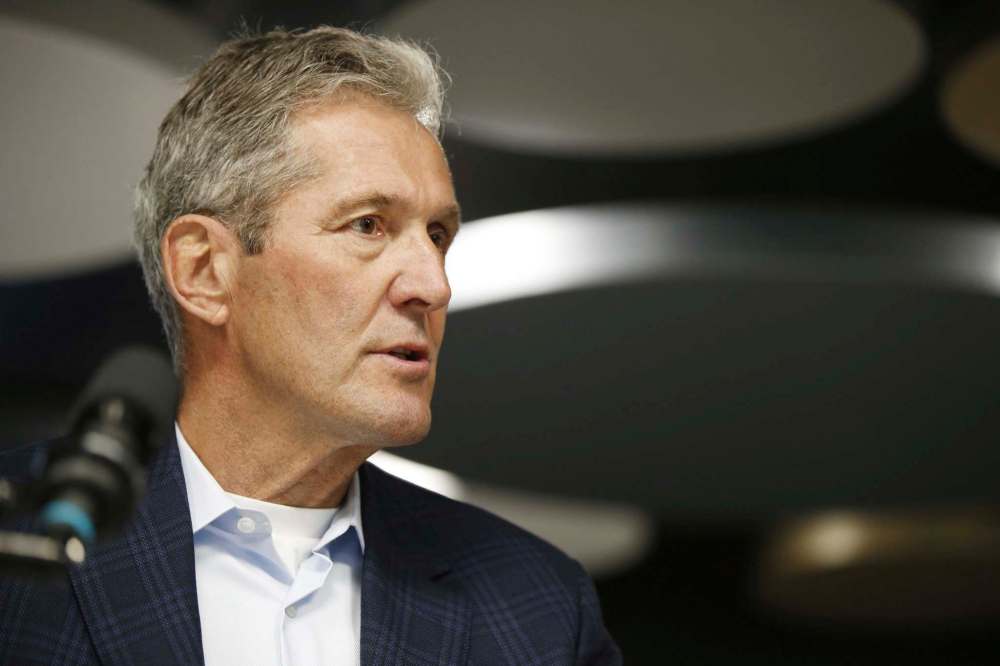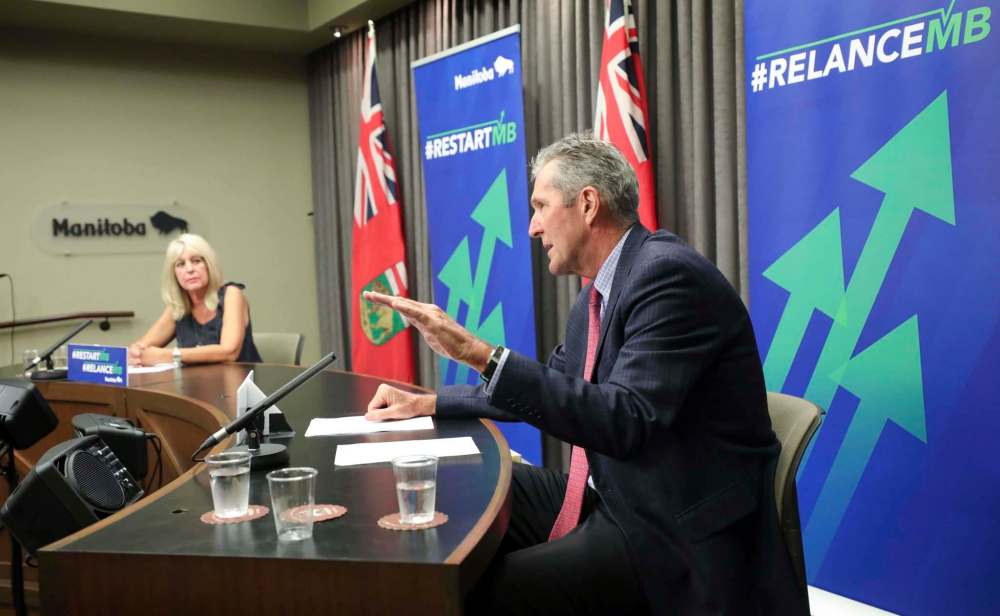Province’s Hail Mary to CFL could work with cautious game plan
Advertisement
Read this article for free:
or
Already have an account? Log in here »
To continue reading, please subscribe:
Monthly Digital Subscription
$0 for the first 4 weeks*
- Enjoy unlimited reading on winnipegfreepress.com
- Read the E-Edition, our digital replica newspaper
- Access News Break, our award-winning app
- Play interactive puzzles
*No charge for 4 weeks then price increases to the regular rate of $19.00 plus GST every four weeks. Offer available to new and qualified returning subscribers only. Cancel any time.
Monthly Digital Subscription
$4.75/week*
- Enjoy unlimited reading on winnipegfreepress.com
- Read the E-Edition, our digital replica newspaper
- Access News Break, our award-winning app
- Play interactive puzzles
*Billed as $19 plus GST every four weeks. Cancel any time.
To continue reading, please subscribe:
Add Free Press access to your Brandon Sun subscription for only an additional
$1 for the first 4 weeks*
*Your next subscription payment will increase by $1.00 and you will be charged $16.99 plus GST for four weeks. After four weeks, your payment will increase to $23.99 plus GST every four weeks.
Read unlimited articles for free today:
or
Already have an account? Log in here »
Hey there, time traveller!
This article was published 20/07/2020 (1973 days ago), so information in it may no longer be current.
Hosting the Canadian Football League in Winnipeg as a hub city during the pandemic would be a huge morale booster for Manitoba. But depending on how strict the public health measures are surrounding the estimated 800 players, trainers and others who would make Winnipeg their temporary home, it also comes with potential health risks.
Province tees up $2.5M in bid to become CFL hub

Posted:
The provincial government wants Winnipeg to be the Canadian Football League's hub city, should a truncated 2020 season happen, and has offered up $2.5 million in support to sweeten its bid.
If done right, and if properly supervised by provincial health officials, this would be a good thing for Winnipeg.
Under the proposal, players, coaches, trainers and others associated with the teams would remain in a “bubble” throughout their time in the city. That means, much like NHL teams in Edmonton and Toronto under that league’s hub city plan, they would not physically interact with the outside world while they are here.
They would be isolated; in their hotels, where they eat, during transportation to and from games and practices, and at the games themselves. There would be no fans in the stands. Teams would not travel in and out of the province once the season started.
This works in theory. It’s good for the economy, it’s valuable branding for the city and it’s an important morale booster for many Manitobans during an otherwise gloomy time.
However, there are caveats. There are unanswered questions. There is risk. How much risk is difficult to tell unless we know more about the province’s oversight plans.
When asked how the province would monitor the league’s compliance with public health rules, Dr. Brent Roussin, the province’s chief public health officer, said that hadn’t been worked out yet, although everything was on the table.
Recommendation: if the province is going to do this, it needs to ensure strict adherence to the rules through regular inspections and spot checks of teams and league officials.
Roussin does make a good point, however; the league is highly motivated, for financial reasons, to mitigate the risk of transmission. If COVID-19 case numbers do climb, even from “inter-bubble transmission,” the season could be cancelled.
Roussin does make a good point, however; the league is highly motivated, for financial reasons, to mitigate the risk of transmission. If COVID-19 case numbers do climb, even from “inter-bubble transmission,” the season could be cancelled.
Still, questions remain. What about quarantine rules for players and others coming from COVID-19 hotspots in the U.S., such as Florida, Arizona and Texas? Not everyone from those jurisdictions would necessarily be required to self-isolate for 14 days upon arrival in Winnipeg, Roussin said. The thinking is if they’re coming into an isolated community of 800 people, any outbreaks would remain within the group and wouldn’t spread to the general public. Wouldn’t it be prudent to have them self-isolate anyway upon arrival?
Also, there would be no asymptomatic testing of players and staff in the bubble; only those exhibiting symptoms would likely get a swab, said Roussin. False negatives for asymptomatic testing are high (people can still have the disease without symptoms even after a negative test). Since they’re in a bubble, the usefulness of asymptomatic testing may be less than it is in the general population. Again, wouldn’t it be better to stay on the safe side and do asymptomatic testing anyway?

If the right measures are taken, this could be a relatively low-risk proposition for Manitoba. But it’s reasonable to ask: why take any risk at all for something as discretionary as CFL football (or any other professional sports)? Because we can’t operate under a no-risk environment.
We have to take some risks, like reopening the economy, as long as they are calculated ones.
Manitoba eliminated the 14-day self-isolation requirement for people entering the province from western provinces, for example, in large part to help boost tourism. It was a calculated, low-risk move. However, if test positivity rates continue to rise in Alberta and Saskatchewan, that decision may have to be reversed.
It wouldn’t take much for a CFL bubble to burst in Winnipeg. If it did, there could be significant public health consequences, not to mention a serious political fallout. The slightest notion that a community outbreak was caused by a CFL player, or a league staff member, would result in a major backlash against the Pallister government.
If the right precautions are taken, with appropriate oversight from public health officials, winning the bid to host the CFL would be a very good thing for a province that’s made a lot of sacrifices to keep its test positivity rate one of the lowest in North America.
The devil will be in the details.

Tom has been covering Manitoba politics since the early 1990s and joined the Winnipeg Free Press news team in 2019.
Our newsroom depends on a growing audience of readers to power our journalism. If you are not a paid reader, please consider becoming a subscriber.
Our newsroom depends on its audience of readers to power our journalism. Thank you for your support.



